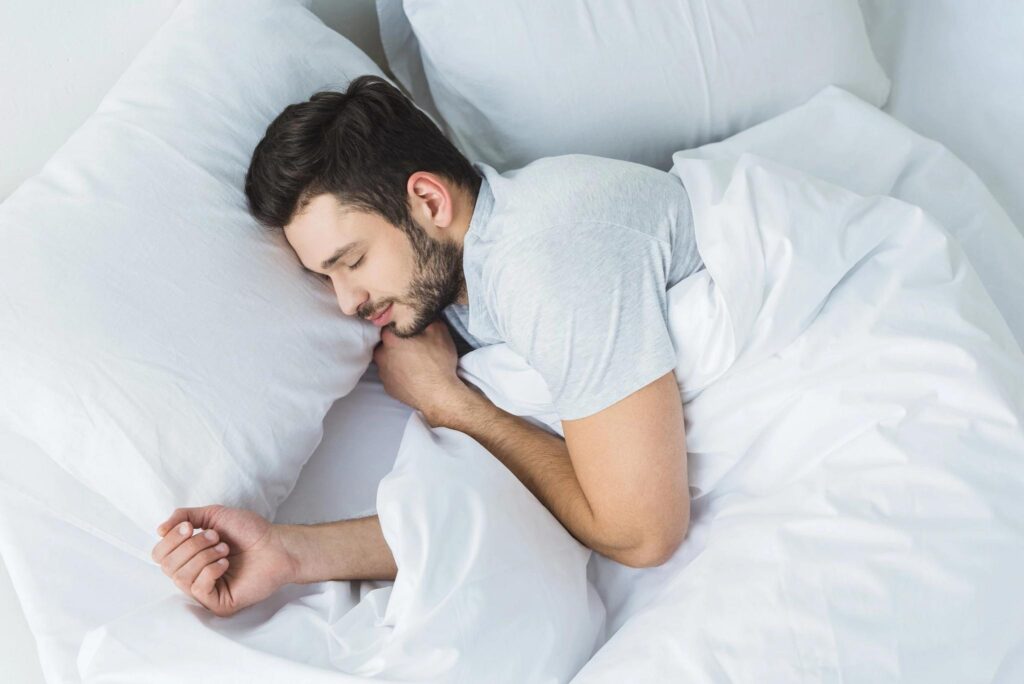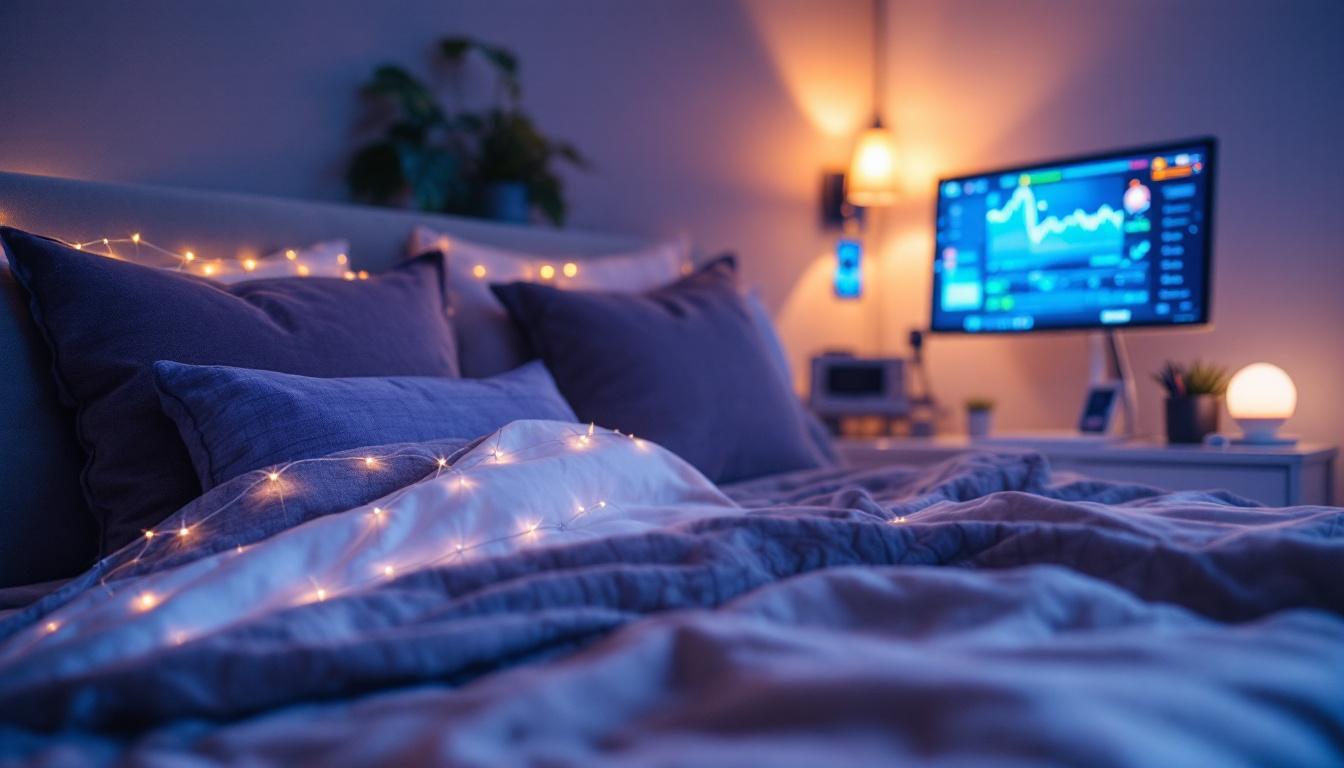Sleep Study Melbourne Cost: What You Should Know

Sleep studies, also known as polysomnography, are essential for diagnosing various sleep disorders, including sleep apnoea, insomnia, and restless leg syndrome. In Melbourne, the cost of these studies can vary significantly based on several factors, including the type of study, the facility, and whether the patient has private health insurance. Understanding these costs is crucial for anyone considering a sleep study, as it can help in making informed decisions regarding their health.
Understanding Sleep Studies
Before delving into costs, it is important to grasp what a sleep study entails. A sleep study is a comprehensive test that records your brain waves, blood oxygen levels, heart rate, and breathing, as well as eye and leg movements during sleep. This data helps healthcare professionals diagnose sleep disorders accurately. The intricate nature of sleep studies allows for a detailed analysis of various sleep stages, including REM (rapid eye movement) and non-REM sleep, which are crucial for understanding the overall quality of one’s sleep.
Understanding the sleep study cost Melbourne is crucial for anyone experiencing sleep-related issues. With prices varying significantly based on the type of study and facility, it is essential for patients to research their options thoroughly. Additionally, exploring insurance coverage and potential government assistance can help alleviate some of the financial burdens associated with these necessary diagnostic tests.

Types of Sleep Studies
There are primarily two types of sleep studies: in-lab polysomnography and home sleep tests. In-lab studies are conducted in a sleep clinic, where patients are monitored overnight in a controlled environment. Home sleep tests, on the other hand, allow patients to undergo testing in the comfort of their own homes using portable equipment. While in-lab studies typically involve attaching multiple sensors to the patient, providing a thorough overview of sleep patterns, home tests often focus on measuring key indicators such as oxygen saturation and airflow, making them a more streamlined option for certain patients.
In-lab polysomnography is typically more comprehensive and may provide a more accurate diagnosis, while home sleep tests are often more convenient and less expensive. The choice between the two will depend on the specific symptoms and recommendations from a healthcare provider. Additionally, the results from these studies can guide treatment options, ranging from lifestyle changes and sleep hygiene improvements to the use of CPAP machines for conditions like sleep apnoea.
Learn more on: Bulk-Bill Sleep Study Melbourne: How to Qualify
Who Should Consider a Sleep Study?
Individuals experiencing symptoms such as excessive daytime sleepiness, loud snoring, or difficulty concentrating may benefit from a sleep study. Additionally, those with a family history of sleep disorders or existing health conditions like obesity or hypertension should also consider undergoing testing. It is worth noting that sleep disorders can have a profound impact on overall health, potentially leading to complications such as cardiovascular issues, diabetes, and mental health disorders if left untreated. Therefore, recognising the signs and seeking a professional evaluation is crucial for anyone suspecting they might have a sleep-related issue.
Moreover, certain lifestyle factors can exacerbate sleep problems. For instance, high levels of stress, irregular sleep schedules, and excessive screen time before bed can all contribute to poor sleep quality. Consequently, a sleep study not only aids in diagnosing specific disorders but can also provide insights into personal habits that may be hindering restful sleep. By understanding these factors, individuals can take proactive steps towards improving their sleep health, potentially leading to enhanced quality of life and overall well-being.
Cost Factors for Sleep Studies in Melbourne
The cost of sleep studies in Melbourne can vary widely. Factors influencing the price include the type of sleep study, the facility where the study is conducted, and whether the patient has private health insurance. Understanding these factors can help patients prepare financially for the procedure.

In-Lab Sleep Study Costs
In-lab sleep studies in Melbourne typically range from AUD 1,000 to AUD 3,000. This price often includes the consultation with a sleep specialist, the overnight monitoring, and a follow-up appointment to discuss the results. However, prices can vary based on the specific clinic and the complexity of the case.
Some clinics may offer package deals that include additional services, such as initial consultations or follow-up visits, which can provide more value for patients. It is advisable to inquire about any bundled services when considering an in-lab sleep study. Furthermore, the expertise of the sleep specialists and the technology used in the monitoring process can significantly impact the overall cost. Clinics that utilise the latest advancements in sleep study technology may charge a premium, but this can lead to more accurate diagnoses and tailored treatment plans. Read more about technology on https://www.mghihp.edu/news-and-more/opinions/health-professions-education-effects/integrating-technology-health-professions-education-trends-and-innovations
Home Sleep Test Costs
Home sleep tests are generally more affordable, with costs ranging from AUD 300 to AUD 800. These tests are less invasive and can be completed in the comfort of one’s home, making them a popular choice for many patients. However, it is important to ensure that the home testing equipment is reliable and that the results will be interpreted by a qualified sleep specialist.
While home sleep tests are less expensive, they may not provide as comprehensive data as in-lab studies. Patients should discuss their symptoms with their healthcare provider to determine the most suitable option. Additionally, it’s worth noting that the convenience of home testing does come with its own set of considerations; for instance, patients must adhere to specific guidelines to ensure accurate results, such as maintaining a consistent sleep environment and following the equipment’s instructions meticulously. This level of personal responsibility can sometimes be a barrier for those who may struggle with sleep hygiene or have complex sleep disorders that require more detailed monitoring.
Insurance Coverage and Out-of-Pocket Expenses
For those with private health insurance, the cost of sleep studies may be partially or fully covered, depending on the policy. It is crucial to check with the insurance provider to understand what is included in the coverage. Some policies may require pre-approval or referrals from a general practitioner before the costs can be claimed.
Government Assistance and Medicare
In Australia, Medicare may cover some costs associated with sleep studies for eligible patients. Generally, a referral from a GP is needed to access these services under Medicare. Coverage can vary, so patients should consult with their GP to understand their eligibility and the potential out-of-pocket expenses.
It is also worth noting that some public hospitals offer sleep studies at little or no cost, but waiting times may be longer compared to private facilities. Patients should weigh the benefits of quicker access against the potential costs when deciding where to have their sleep study conducted.
Moreover, the financial implications of sleep studies extend beyond the initial testing. Follow-up consultations, potential treatments, and ongoing management of sleep disorders can add to the overall expense. Patients should be proactive in discussing these aspects with their healthcare providers, as understanding the full scope of costs can help in budgeting and financial planning. Additionally, some health funds may offer specific programs or incentives for preventative health measures, which could alleviate some of the financial burden associated with sleep health.
Furthermore, it’s important to consider the broader context of sleep health and its impact on overall well-being. Sleep disorders can lead to a range of health issues, including cardiovascular problems, mental health challenges, and decreased quality of life. Therefore, investing in a comprehensive sleep study, even with associated costs, can be viewed as a vital step towards long-term health. Patients are encouraged to explore all available options, including community health initiatives that may provide financial assistance or subsidised services, ensuring that they receive the care they need without undue financial strain. Click here to find more about community.
The Importance of Follow-Up Care
After a sleep study, follow-up care is essential to discuss the results and any necessary treatment options. This appointment typically involves a consultation with a sleep specialist who will interpret the data collected during the study and recommend a course of action.
Potential Treatment Options
Depending on the diagnosis, treatment options may include lifestyle changes, the use of continuous positive airway pressure (CPAP) machines for sleep apnoea, or medications for insomnia. It is crucial for patients to adhere to the recommended treatments to improve their sleep quality and overall health.
In some cases, additional testing or referrals to other specialists may be necessary, which can incur further costs. Patients should be prepared for these possibilities and discuss any concerns with their healthcare provider during the follow-up appointment.
Monitoring Progress
Regular follow-up appointments may be required to monitor progress and adjust treatment plans as needed. This ongoing care is vital for ensuring that the chosen treatment is effective and that any emerging issues are addressed promptly.
Conclusion
Ultimately, investing in a sleep study can lead to improved health and quality of life. With proper diagnosis and treatment, individuals can take significant steps towards better sleep and overall well-being. It is advisable to consult with a healthcare professional to determine the most appropriate course of action based on individual symptoms and circumstances.
